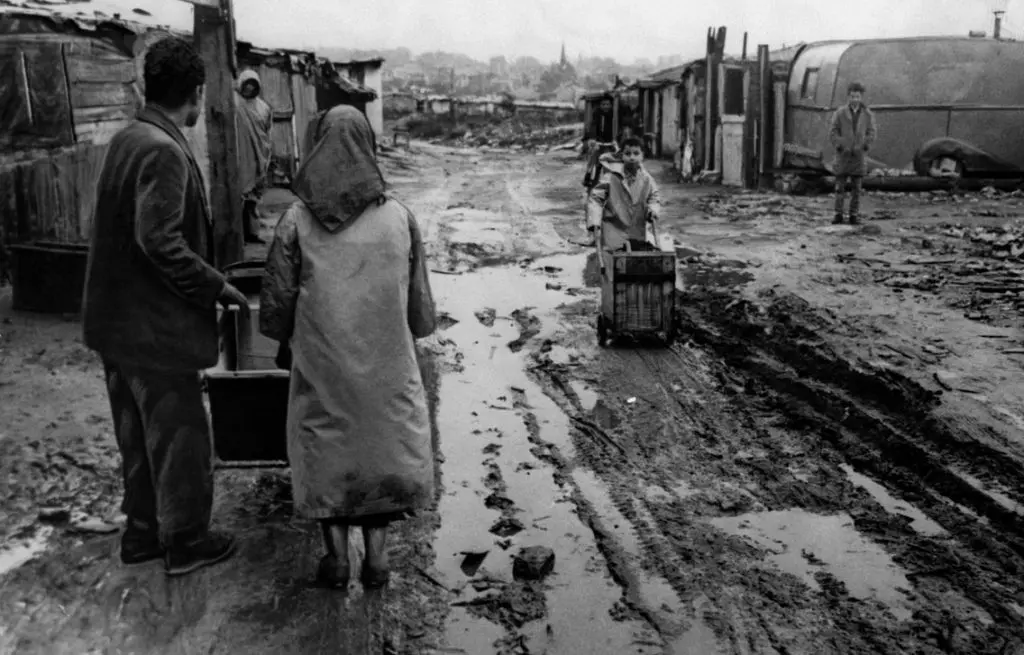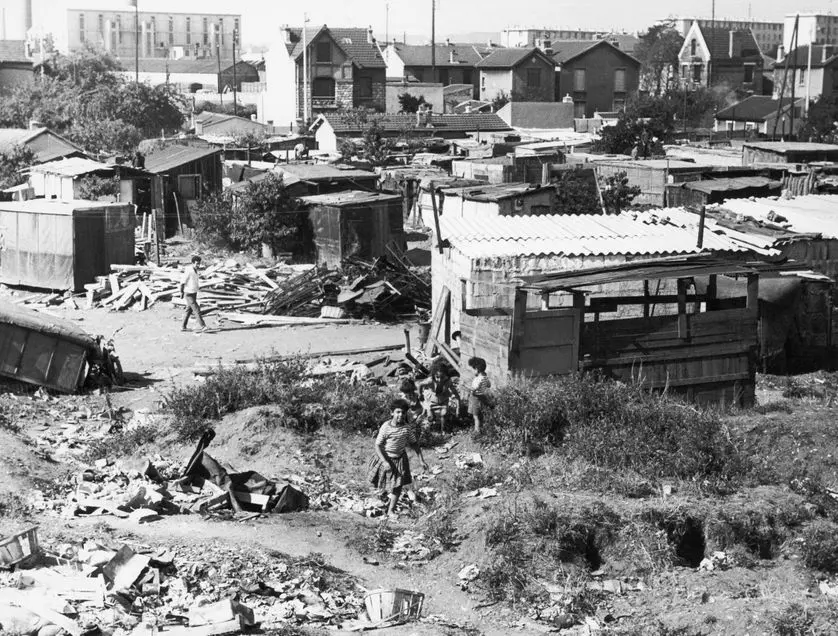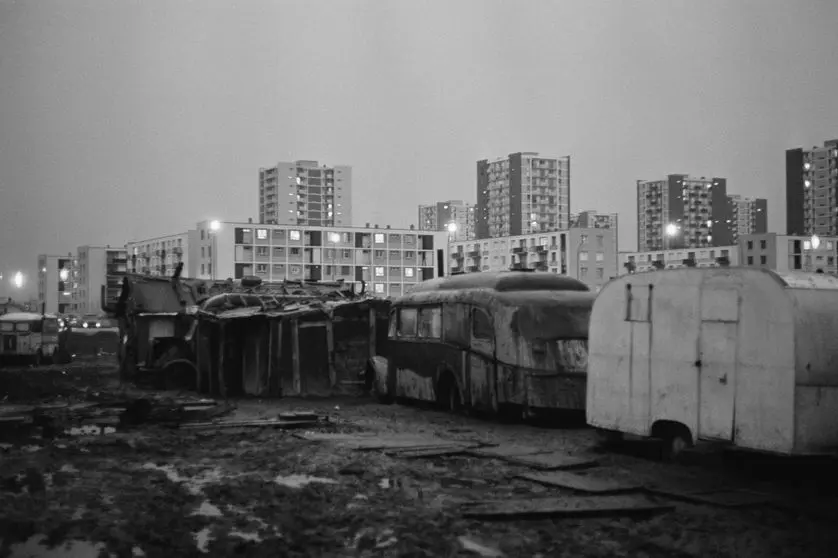My youth in a French shantytown! testimony taken by ZEZ
I was still very young. It took me time to understand the rejection… But having spent my youth in the shantytowns of Nanterre, in that place of neglect that outsiders call “the slums,” I walked around La Défense, far from its false arrogance. That’s when I caught sight of those housing estates. It still shakes me to this day. I felt jealous, outraged, and saddened. Why were these families entitled to live in buildings while we were confined to the edges of death, like horses ridden during the day and left to rest at night?
One thing struck me, even though I couldn’t admit it to myself yet. Among all those families living in the luxury of dormitory cities, there were very few people who resembled me. Very few with a tanned complexion and a Southern accent. They were considered good French, while we were deemed wicked Arabs. It is said today that France is racist. But in the 70s, the situation was catastrophic. I remember one day being at the Town Hall with my mother. I understood French, she pretended to speak it. Amidst the clamor of administrative utensils, I heard cruel words, violent phrases like, “What do those Arabs want from us?” Our parents accepted it all because they didn’t understand what was happening to them.

My father settled in France in the 50s. To avoid being too cliché, he came to France in search of work from his native Algeria, while France hoped to attract discounted arms and legs to rebuild a country devastated by war. This whole story starts off like a racist joke. Then he brought his wife over. Initially, he lived in a bachelor’s residence, but now he had to build a home. So he took things literally, invited one of his friends, and built a shack around the shantytowns of Nanterre.
As for me, when I was born, I didn’t feel different from others. I didn’t feel poverty on a daily basis. Never having experienced the luxury of a proper home, I thought that France was a country of shantytowns, a Bearnese-style Mad Max, the kind of things that a native couldn’t understand. As a child, the shantytown was my playground.
Strangely, there are many illusions about the organization of a shantytown. Some believe that there are leaders and the rest. Not at all, each family lived their life just like in any housing estate; there were no legions or mafia. We were the prepubescent children of a Republic that hated seeing us so much that it confined us to the depths of a slum. But we were not well-regarded by the population.
One evening, we were strolling with friends from the shantytown. We were around 8 or 9 years old. Two fairground workers were attacked by a gang. The Judicial Police forces aggressively apprehended us. In the hearts of the peacekeepers, I saw mostly hatred towards something they didn’t understand. The incident had a certain impact at the time, and I ended up facing the Internal Affairs. But the Police Internal Affairs advised me not to file a complaint if I didn’t want my parents to be deported out of the country. It was the first time I felt that rejection that pushed us all towards death.

Yes, because contrary to appearances, the shantytown, even though most of my fellow believers came from the Maghreb, was far from being a Mosque. After work at the factory, the workers smoked cigarettes abundantly and drank as much alcohol as they could. Sometimes they would pray to ease their conscience, but it never went very far. Then one day, I met my brother-in-law. The man was deeply religious. It’s strange, I think. Sometimes, a person demands respect from us just because they believe in God. I don’t think that’s a good thing. Respect cannot be demanded. Things changed. According to this skillful speaker, we were destined to burn in the flames of hell for our irreverence towards the Lord. We were already in Hell, seeking paradise elsewhere. With these radical speeches, Islam gradually became the local pawnshop. Soon after, he sent me to Algeria for military service, but that’s another story.
Between joys and sorrows, life around the shantytown held on. But it was far from being a haven of peace. One day, a couple was born in the shantytown. The boy was one of us, while the girl was rich. Well, she was rich in our eyes, living in a housing estate. We saw them everywhere. It was a true example of success for us. Then the boy was imprisoned. During his incarceration, his girlfriend found another shoulder to lean on. He was released, and he murdered her… A tragic and regrettable ending. The shantytown was a magnifying mirror of sorrows.
I spent my youth in a space of freedom, and I didn’t feel the rejection right away. But the worst part of my story is the stories of others. The heroine entered the shantytown at the same time as me. I can’t count the number of friends I’ve seen slide into delinquency and then into death. They fall one after another, in front of the macabre backdrop of tile-roofed shacks because, as always, “behind the joys hide the sorrows.”
Paradoxically, if I managed to make it out, paradoxically, if I became an actor, if I manage somehow, it’s only because I wasn’t as strong as the others, not as violent, not as aggressive. I didn’t have a choice; I had to break free to understand. I had to live in order to survive. Behind me, there are no more shacks, just the memory of a few comrades-in-arms who were consumed by drugs or prison in the torment of their sorrows.


